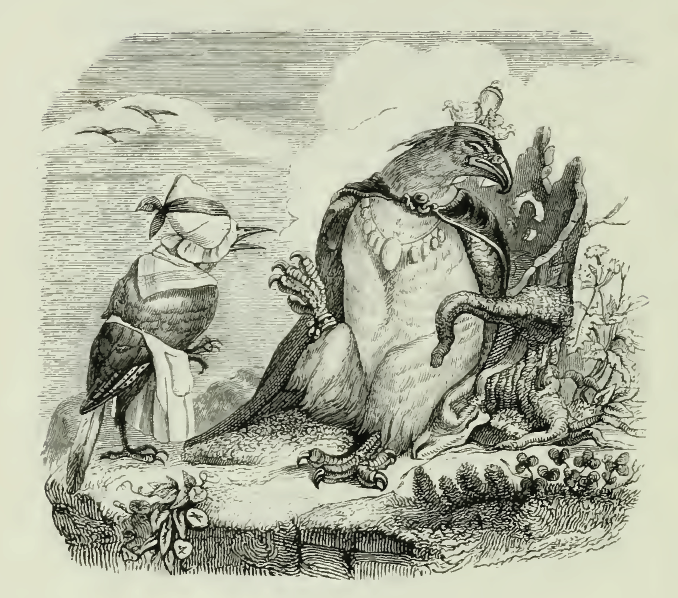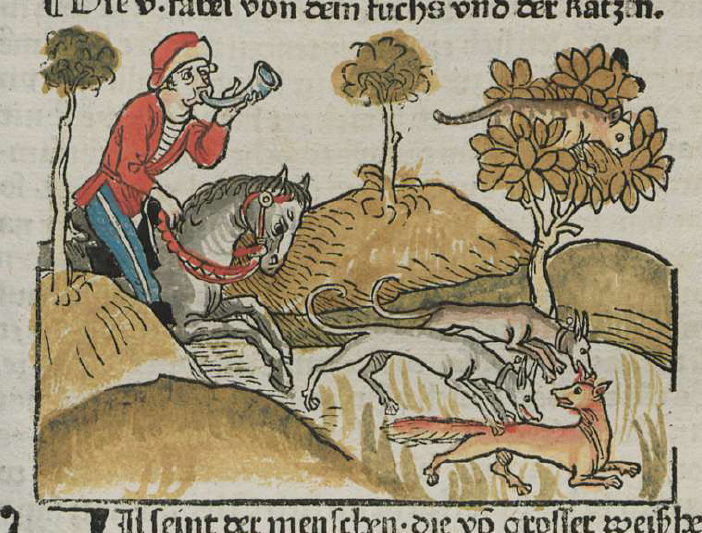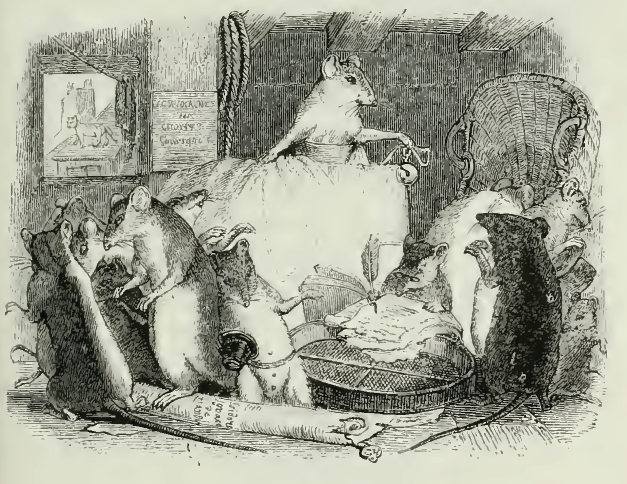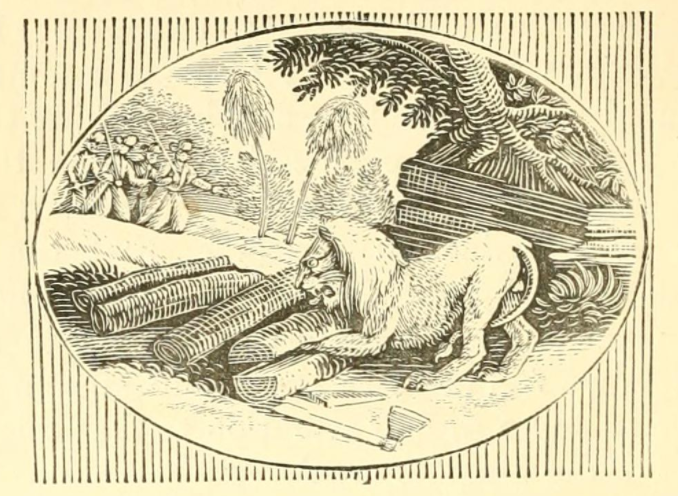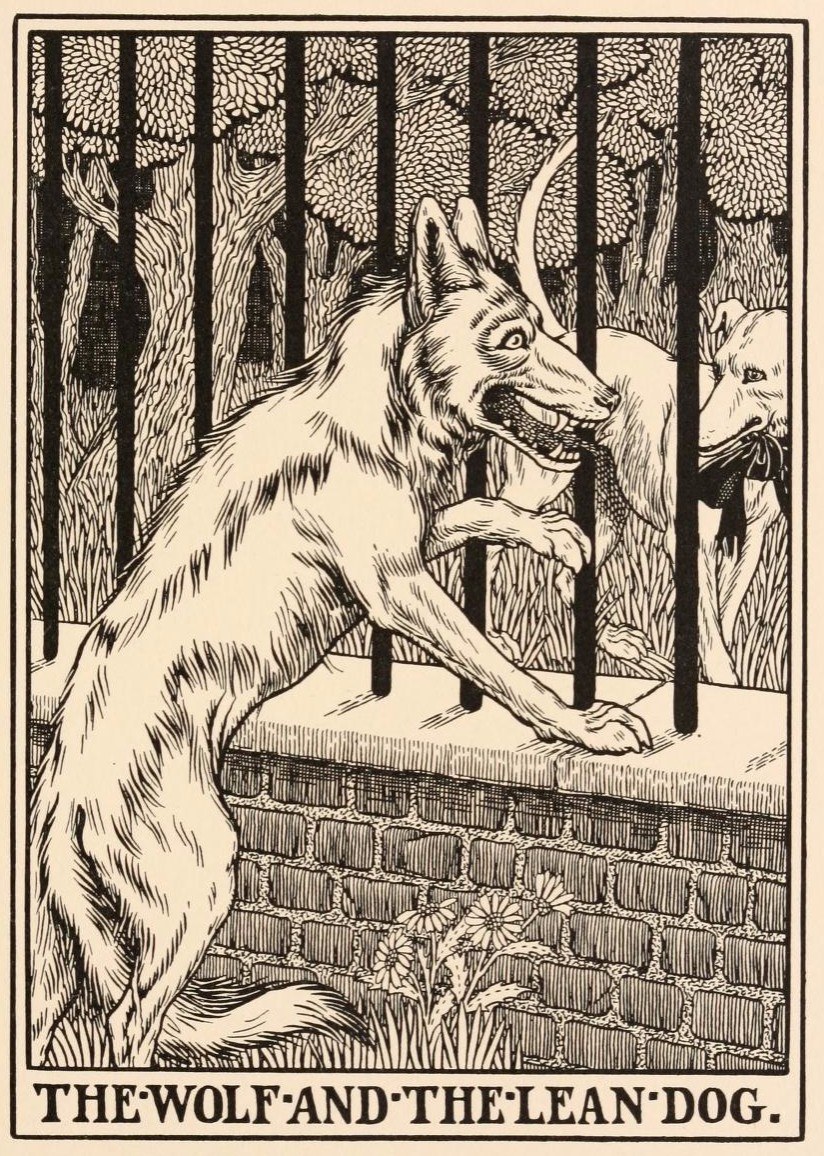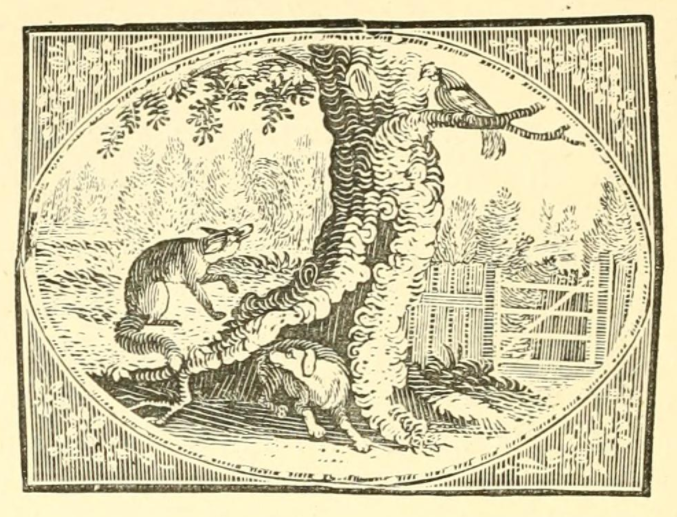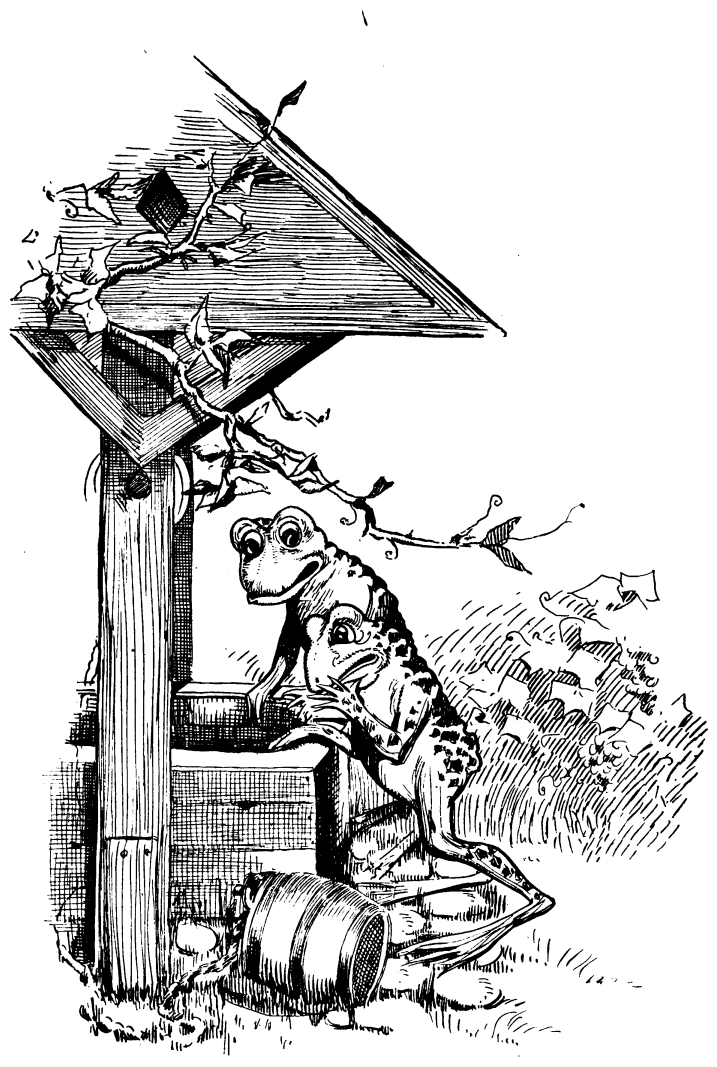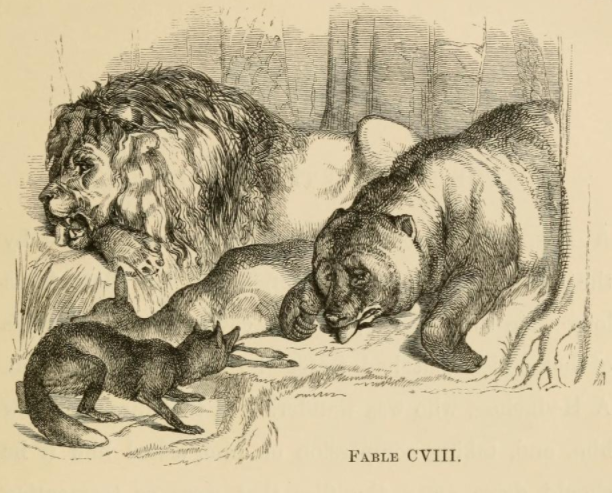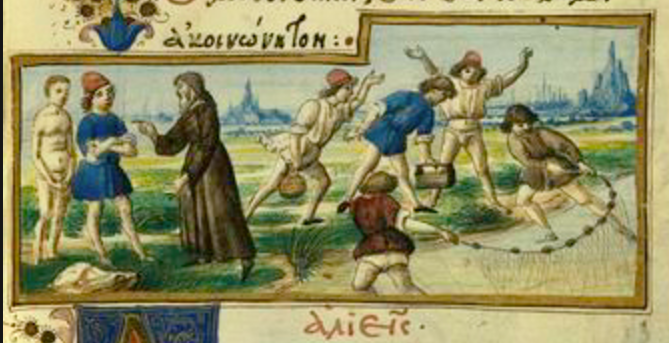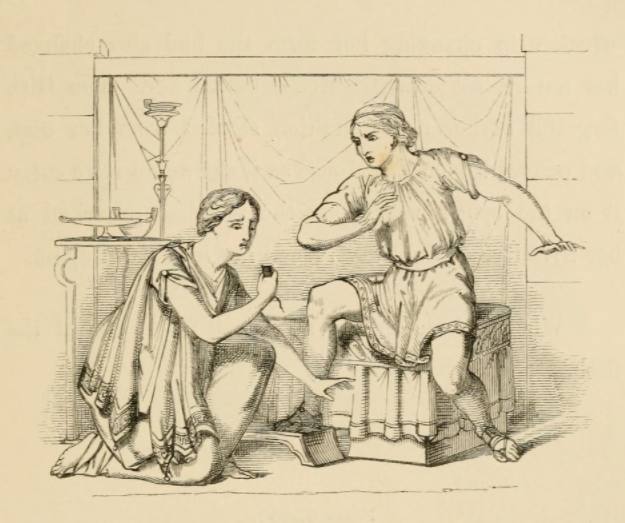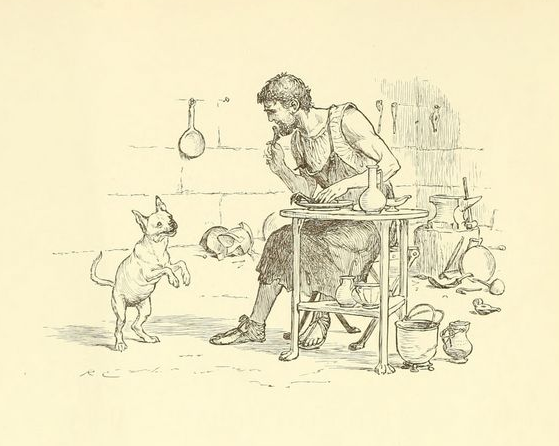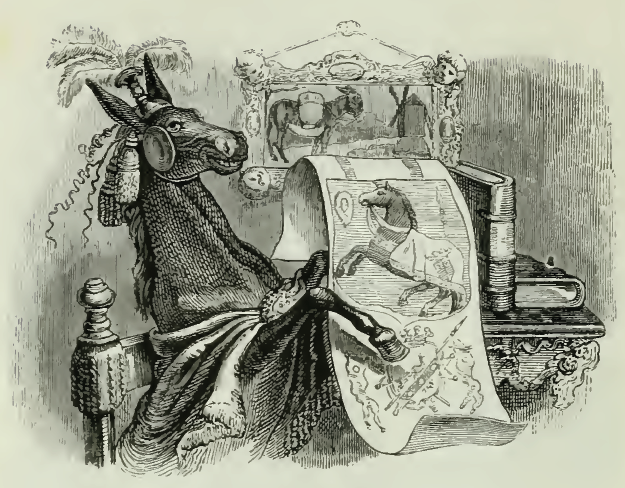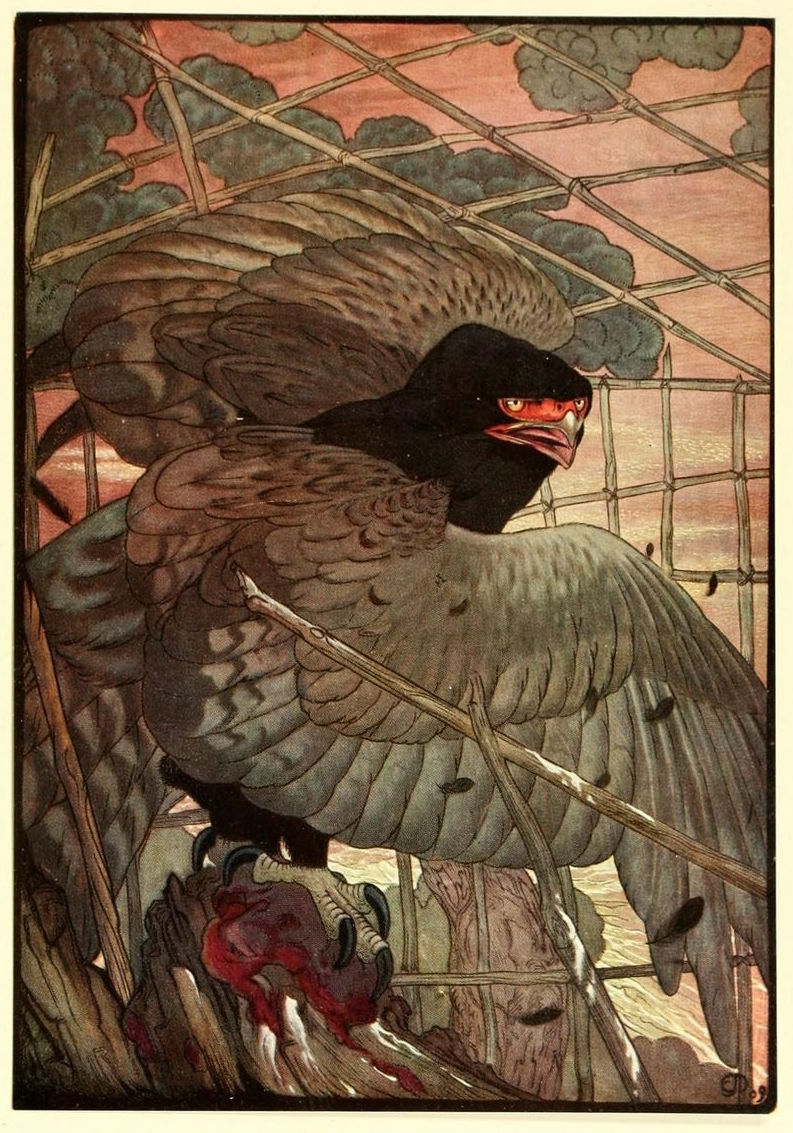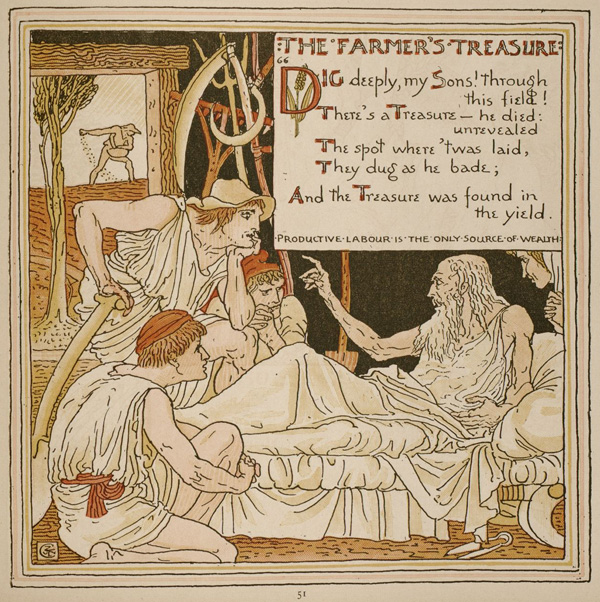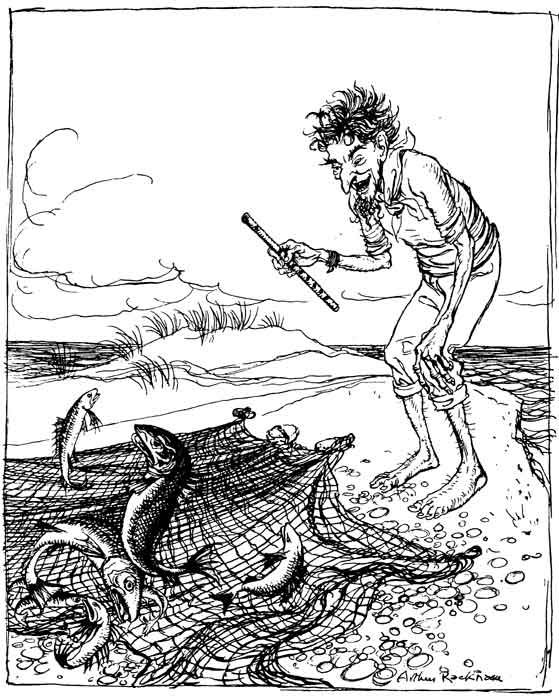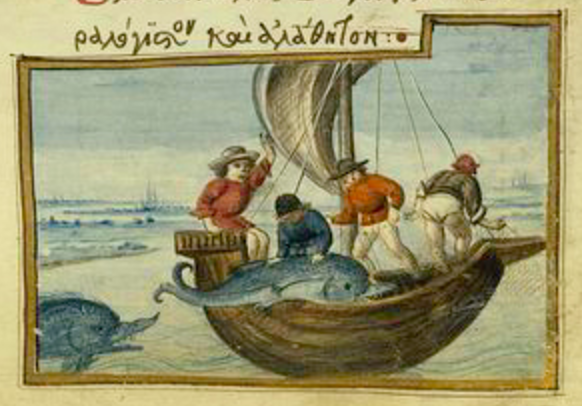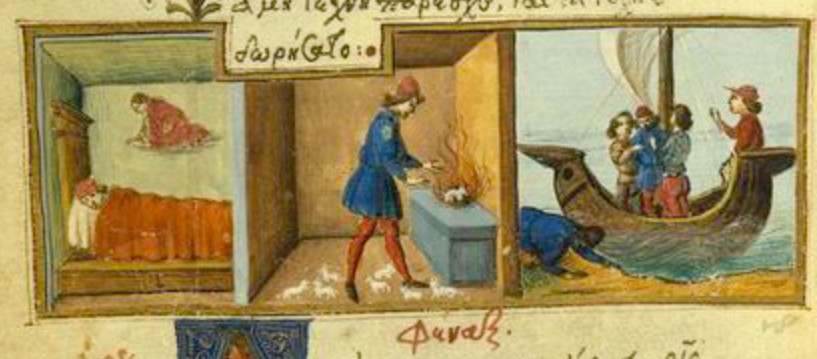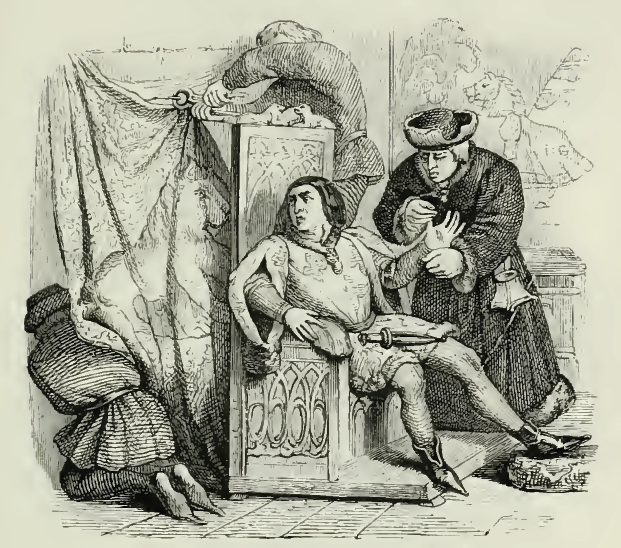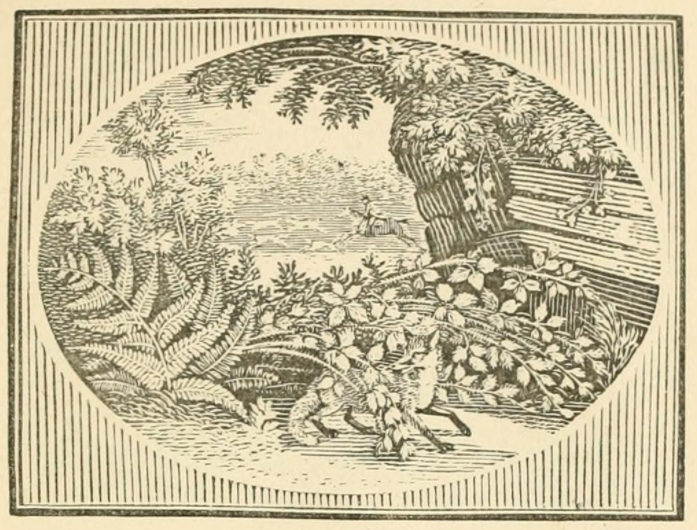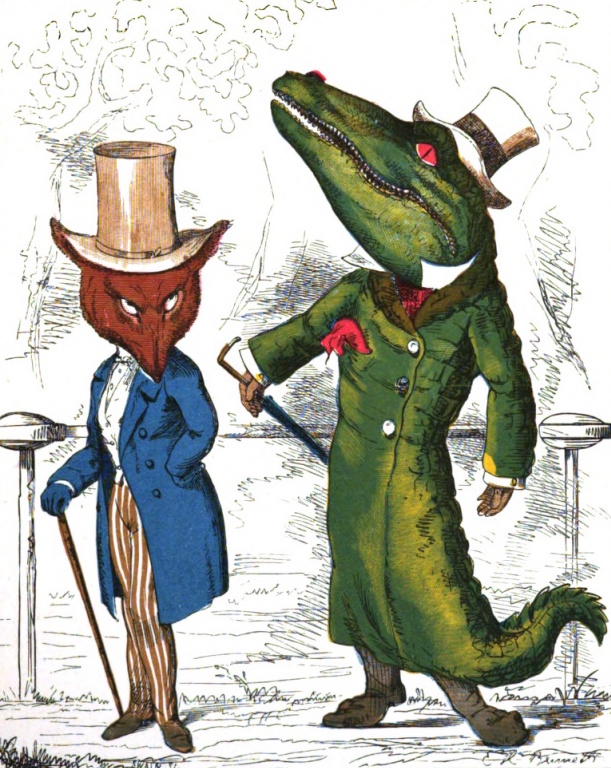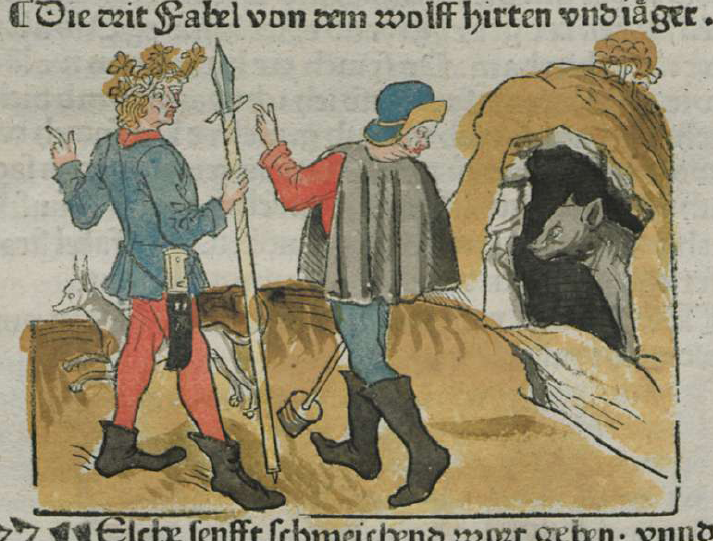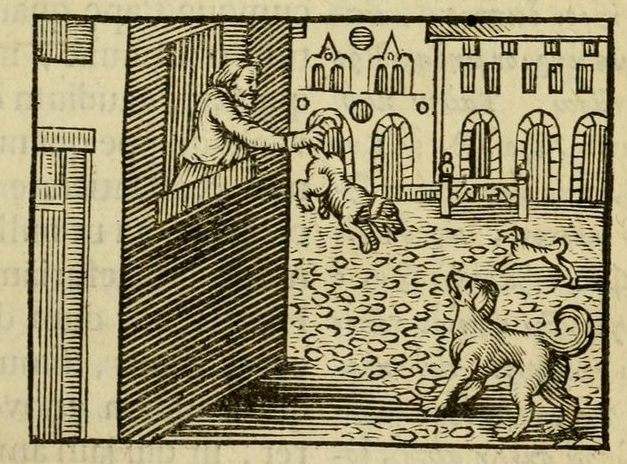Here are some more fables from H. Clarke's Latin textbook
Fabulae Aesopi selectae, or, Select fables of Aesop, and you can click here for
all the fables reposted from this book at the blog.
196. Of a Lark
A lark, taken in a snae, said lamenting, "Ah me! Miserable and unhappy, I have not stolen the gold nor the silver of any one, but a grain of wheat has been the cause of my death."
Moral. The fable tends to them who undergo great danger for unprofitable gain.
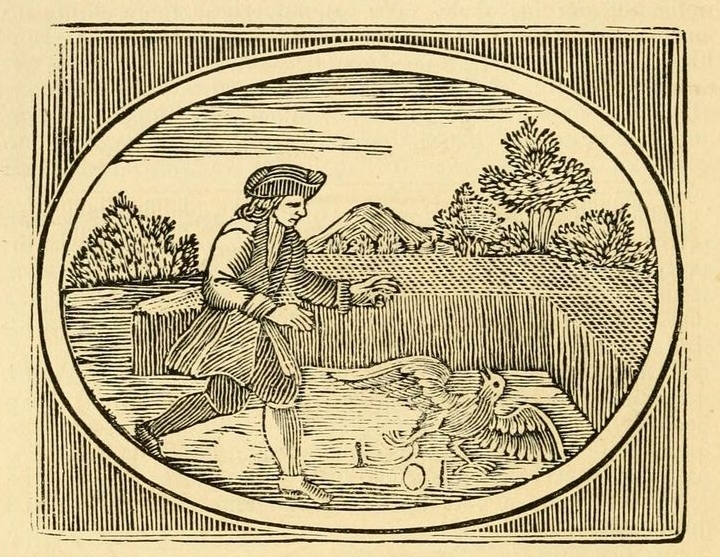
197. Of a Lion Worn Out with Age
A lion when he had grown old, nor could get his living, contrived a way, how provisions should not be wanting to him. Therefore having entered the den, lying down, he feigned himself vehemently to be sick. The living creatures, thinking him verily to be sick, went to him for the sake of visiting him; whom the lion taking ate up one by one. When now he had killed many animals, the fox, the art of the lion being known, coming to the entrance of the cave, standing without, asks the lion how he did. The lion milkly answering her said, "Daughter fox, why dost thou not enter in to me?" The fox said, not unwittily, "Because, my master, I perceive indeed very many footsteps of animals entering in, but no footsteps of them coming out."
Moral. The fable signifies that a prudent man who foresees imminent dangers easily avoids them.

198. Of a Lion and a Bull
A lion, following a great bull by treachery, when he came near, invited him to supper, saying, "Friend, I have killed a sheep; you shall sup with me today if it pleases you." As soon as they had sat down, the bull, seeing many cauldrons and spits ready, and that there was no sheep for him, was willing to depart; whom the lion perceiving now going away asked him why he would go. The bull answered, "Truly, I do not go away for nothing when I see instruments prepared not to dress a sheep, but a bull."
Moral. The fable signifies that the arts of the wicked do not lie hid from the prudent.
199. Of a Sick Man and a Physician
A sick man, being asked by the physician about his health, answered that he had sweated violently; the physician says that that was good; asked by the same physician a second time how he found himself, the sick man said that he was seized with a vehement coldness; the physician also says that that was for his health. Asked a third time by the same how he found himself, the sick man said that he was not able to digest without great difficulty. The physician says again that that was the best for his health; afterwards, when some one of his domestics asked the sick man, how he did, says he, "As the physician says, there are to me many and the best signs for health, yet I perish by those signs."
Moral. The fable shows that flatterers are to be blamed.
200. Of a Certain Woodcutter
While a certain woodcutter cleaved wood near a river dedicated to the god Mercury, his ax by chance fell into the river. Therefore affected with much grief, he sat down sighing near the bank of the river. Mercury, moved with pity, appeared to the woodcutter and asked the cause of his weeping, which, as soon as he learnt, bringing him a golden ax, he asked whether it was that which he had lost. But the poor man denied that it was his. A second time Mercury brought another, a silver one, which, when the poor man denied also to be his, at last Mercury reached the wooden one, when the poor man agreed that that was his. Mercury, knowing him to be a man true and just, gave them all toh im for a gift. Therefore the woodcutter, coming to his companions, declares what had happened to him. One of his companions, willing to try it, when he came to the river threw his ax in the water, then he sat weeping on the bank; the cause of whose weeping when Mercury had heard, bringing a golden ax, he asked whether that was it, which he had lost, which, when he asserted to be his own, Mercury, his impudence being known, neither delivered to him the golden one, nor his own.
Moral. The fable signifies that by how much God is more propitious to the honest he is the more severe to the wicked.
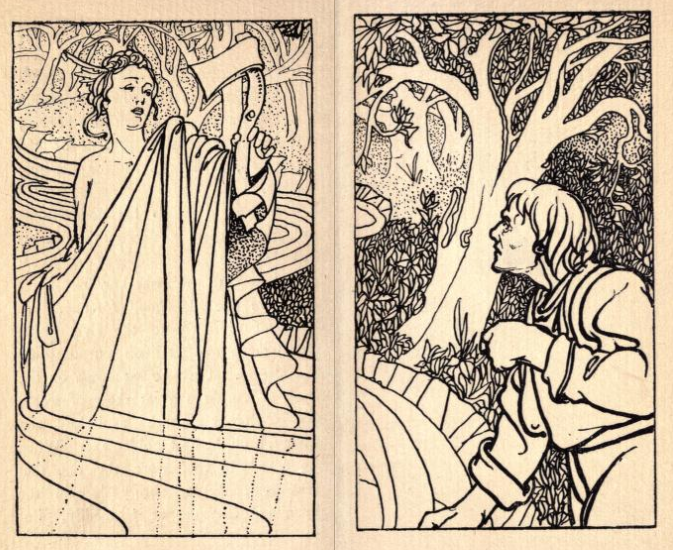
201. Of a Physician who Cured the Mad
Many talked of the superfluous care of those who feed dogs for fowling. A certain man of them says, the fool of Milan laughed at them rightly. When the story was demanded, he said, there was a physician, a citizen of Milan, who undertook to cure the mad, brought to him within a certain time, but the cure was of this manner; he had at home a court, and in it a pond of stinking water, in which he bound them naked to a stake, some up to the knees, others up to the belly, some more deeply, according to the degree of madness; and so long he starved them in the water, till they seemed sound in mind. A certain man was brought among the rest, whom he put into the water up to the thigh; who began to recover after fifteen days, and to ask his physician, that he might be brought out of the water; he took out the man from the torment yet on that condition that he should not go out of the court. When he had obeyed some days, he permitted that he might walk over the whole house, but that he should not go out of the outward gate (his companions, who were many, being left in the water); he obeyed the commands of the physician diligently, but standing upon the threshold on a certain time (for he did not dare to go out) he saw a young man coming on a horse with two dogs, and a hawk, moved with the novelty of the thing (for he did not retain in memory the things which he had seen before his madness) when the young man came near, he said, "So ho, you, I pray, answer me in a few things: what is this on which thou art carried?" says he, "it is a horse." Then afterwards "what is called this, which thou hast in thine hand and in what thing dost thou use it?" He answered "it is a hawk, and fit for the catching of partidges." Then the madman asks "and these, that accompany thee, who are they, and what do they profit to thee?" He says "they are dogs, and fit for fowling, to trace the birds." "But these birds, for the sake of catching which you prepare so many things, of what price are they, if you put together the prey of a whole year into done?" When he had answered, "a little, I know not what, and that it could not exceed six guineas," the madman asks, "what may be the expense of the horse, of the dogs, and of the hawk?" He affirmed the expense of them to be yearly fifty guineas. Then having admired the folly of the young man, says he, I pray, go hence quickly before that the physician return home; for if he should find thee, he will throw thee into his pond, as the most mad of all men, and he will place thee in the water up to the chin.
Moral. The fable shows many madnesses to be daily unobserved.
202. Of an Obstinate Woman who Called her Husband Lousy
A certainw oman, absove measure contrary to her husgband so that she would be superior, once in a heavy quarrel with him called him lousy. He, that she might retract that word, bruised his wife, beating her with his fists and heels. By how much the more she was beaten, by so much the more she called him lousy. The man at length tired withe beating her that he might overcome the obstinacy of his wife, let her down into a river by a rope, saying that he would suffocate her if she would not abstain from such words. She persisted in nothing the less to continue that word, although fixed upt o the chin in the water. THen the man plunged her into the river so that she could not speak more, trying if he could turn her from her obstinacy by the fear of death. But she, the faculty of speaking being taken away, expressed with her fingers what she could not with her mouth: for, her hands being raised above her head, the nails of each thumb being joined, she gave what reproach she could to her husband by that gesture.
Moral. This fable shows that some will retain their obstaincy even at the hazard of death.
